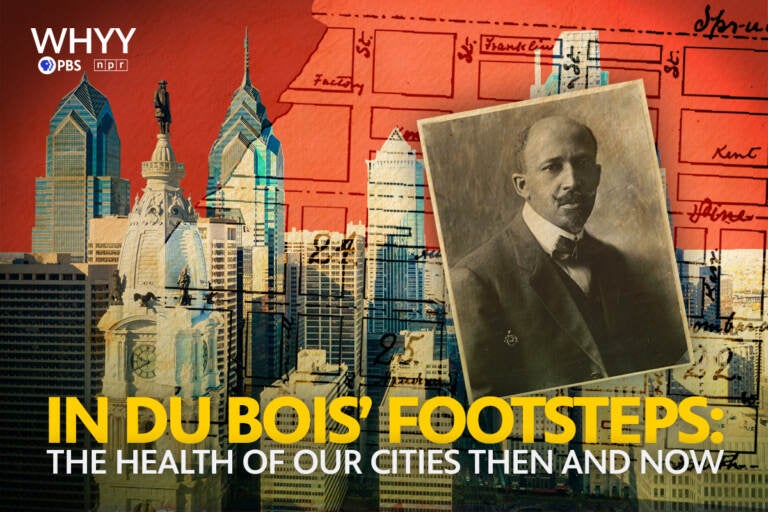Watch ‘In Du Bois’ Footsteps: The Health of our Cities, Then & Now’
WHYY & The Pulse hosted a conversation about the legacy of W.E.B. Du Bois' ground-breaking book,"The Philadelphia Negro" and the path towards more equitable cities.

In the late 1800s, W.E.B. Du Bois was commissioned by the University of Pennsylvania to document social problems in Philadelphia’s majority-Black 7th Ward.
Going door-to-door, Du Bois conducted surveys, and had in-depth conversations with the residents to learn more about their lives, living conditions, and the challenges they faced.
In 1899, Du Bois published his ground-breaking book, “The Philadelphia Negro,” the first sociological study of an African American community in the United States. The study would go on to shape the field of social science for decades to come. It was one of the earliest examples of a researcher making connections between social determinants of health like poverty and housing and racial disparities in health outcomes.
On Sept. 15, 2021, Sojourner Ahebee, health equity reporter for WHYY and The Pulse, moderated a conversation between Elijah Anderson, Sterling Professor of sociology & African American Studies at Yale University, Tawandaa Austin, Senior Community Health Worker for Penn Medicine, and Sharrelle Barber, Director of Ubuntu Center on Racism, Global Movements and Population Health Equity at Drexel University, about the laws, policies, and historical forces that have impacted the health conditions of city residents from Du Bois’ time to today.
Watch a recording of the event, ‘In Du Bois’ Footsteps: The Health of our Cities, Then & Now,’ below:
Support for WHYY’s coverage on health equity issues comes from the Commonwealth Fund.
WHYY is your source for fact-based, in-depth journalism and information. As a nonprofit organization, we rely on financial support from readers like you. Please give today.







